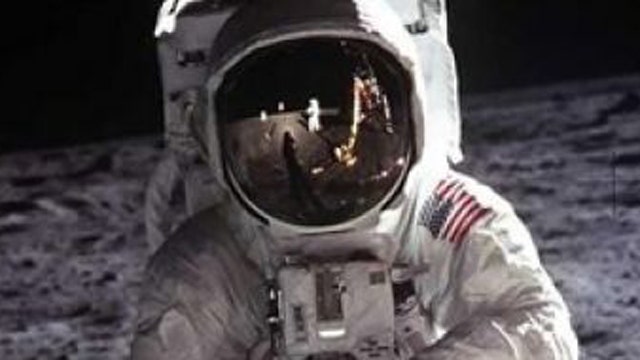Fox on Reddit: 10 things we learned about Buzz Aldrin
Did you know Buzz Aldrin took a sub to the Titanic's wreck site?
It has been almost 45 years since an estimated 600 million people on Earth watched Apollo 11 crew members Neil Armstrong and Buzz Aldrin take their iconic first steps on the moon.
So where were you? When did you first learn about the mission? That question will be the basis of a star-studded social media campaign launching this week to commemorate the July 20 anniversary.
Pharrell Williams, John Travolta, Jared Leto, Stephen Colbert, Tim Allen and Sir Richard Branson are just a few of the stars participating in the campaign, and people everywhere are invited to upload their own stories and videos and share them on YouTube, Facebook, Twitter, Google+ and Instagram, using the hashtag #Apollo45.
"What was the impact that it had on you? We're calling attention to the 45th anniversary, it fulfilled the (President) Kennedy commitment," Aldrin, 84, told FOX411.
The anniversary comes at a time when NASA’s budgets and funding are in the spotlight, although Aldrin is optimistic about future space exploration efforts. First of all, he sees spacecraft as an opportunity to "inspire the expansion of other US/China cooperation."
As the Communist country develops its own space station and both China and the U.S. plan for exploration of the moon and beyond, Aldrin says now is the time to build the proper relationships for future cooperation. Space could thus function as the "high ground" to develop this trust, he said.
The astronaut also has high hopes for a hybrid human/robotic mission by 2025, with the intent to investigate an asteroid and offer an opportunity to demonstrate our new technological capabilities while benefiting science.
"Both a human crew and robotic crew (need to target) the same asteroid. If we just did a robot crew, that has significant limitations," Aldrin said. "Just a human mission could take pictures for 60 days and come back, but that's not very complete. Combining the missions, it would be very beneficial."
After humans leave the asteroid, he said that the robotic exploration could continue, remotely controlled from Earth. Also looking forward, rather than spending billions to send people to Mars and return them to Earth, Aldrin says programs should support eventual settlement once crews have built a livable habitat.
"We send humans and they do not come back. Eventually they will be joined by more people to build up a colony," he said, adding that billions of dollars spent on each mission should be with the intention of establishing a permanent residency on the planet.
Follow @holliesmckay www.twitter.com/holliesmckay on Twitter

